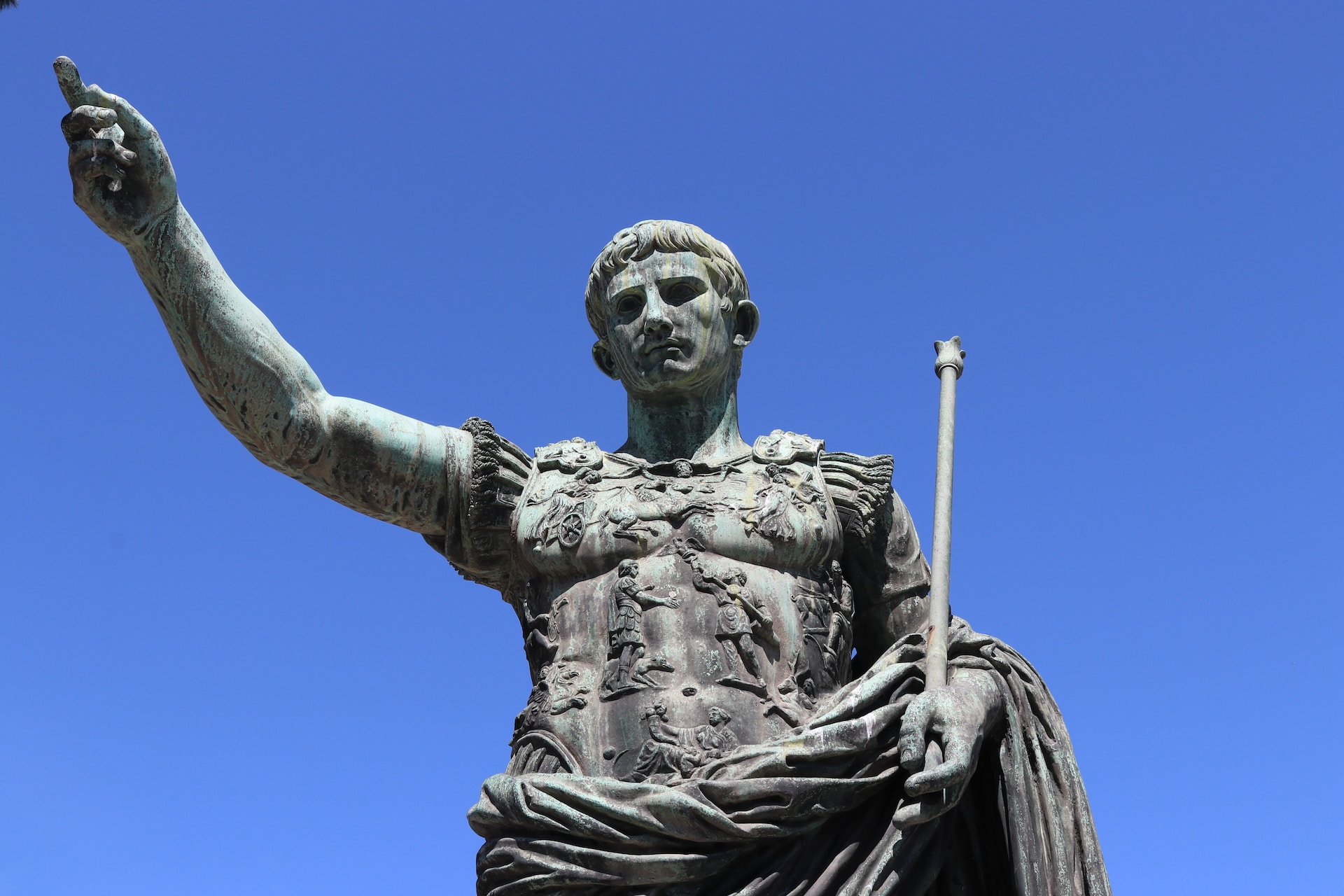Most Recent News


Popular News





How to fix a decaying republic: Julius Caesar style.

The Roman Republic formed and thrived.
Then it degenerated into the Roman Oligarchy, as all republics do.
There was an entrenched political elite that operated alongside a financial/cultural elite to suppress—and financially enslave—the average people.
Sound familiar? This oligarchy largely resembles our own situation (us plebs against our ruling class).
Julius Caesar devised a solution. That solution involved an end to the corrupt optimate republic, in favor of the populares.
The Julius Caesar solution is twofold:
The first is rather self-explanatory. He corrected the power cycle by putting in proper hierarchy and authority, which always falls away in degenerated periods. Unaccountable wealth should not control the state and the institutions, but in late-stage republics, it always does.
But the second point is truly fascinating, and it is something many of our own modern reformers gloss over. It is what I want to focus on for this article.
Caesar often gets a bad rap because of our corrupted history (and because of Cicero’s dramatic whinings about the man due to Cicero being an eques optimate who had much to lose personally).
If his coming and reforms were so hated as some of the biased historians claim, then why do we have ample evidence of people cheering his crossing of the Rubicon, gathering to greet him, populares joining at whim, and helping his soldiers along the way? Additionally, and perhaps more impactful, why did the oligarchs have to flee to Asia if the republic had such superb support?
The truth is that the republic’s ruling class oligarchs were trash. And like all trash, they needed to be and were thrown out. Just like how our own trash needs to likewise be emptied.
But not only did Caesar do so, he then also put in the monetary reforms to permanently keep them confined to the trashcan.
The reform’s primary focus was to decimate the financialization ability of the oligarchs. But they massively benefited the people in the process. Both are win/wins in my book.
The crisis of the Roman Republic lasted from 134 BC to 44 BC. But the main piece, the monetary crisis, existed around 51 BC to 44 BC. Julius Caesar reigned from 49 BC until his assassination in 44 BC. It is these monetary items that largely set the empire up for success under Augustus.
Caesar is the only person I know of throughout all of history that actually solved a debt crisis that existed alongside a monetary crisis favorably. The financial issues that existed during his short reign were massive, but you rarely hear about them because he solved them. Once the civil war period ended and Augustus came in, only minor tweaks were needed based on Caesar’s blueprint. Pax Romana was achieved.
How’d he do it?
Julius Caesar mandated the following:
(* Note: These are sourced from many books. Most come from Plutarch’s history, but I also used Goldsmith’s History of Rome (Gutenberg), SPQR, and A History of Central Banking and the Enslavement of Mankind.)
Even in his death Caesar helped his people. In his will, he distributed the wealth he amassed to each citizen (300,000 sesterces to each person). He also gave up his villa, gardens, and art gallery to be made public.
This list solved the monetary crisis amicably. Both lenders and borrowers were satisfied. That never happens. The only people that fought Caesar were the holdouts in the Senate optimate oligarchy, that had to give up their looting of the masses.
The exact same kind of looting that is happening to our people right now, in modern America.
Could you imagine if we enacted these reforms today? How absolutely awesome it would be?
Vanguard could not hoard their money and farms anymore. Houses and land could not be centralized by the likes of Bill Gates and BlackRock. Interest would be capped at a measly 1%, so loans would actually be fair and affordable (not usury). The Fed would be disbanded, because they would no longer serve a purpose. No more enslavement of our average people in massive debt, both public and private. Our people could get their land and currency back.
I know people don’t like to hear it, but sometimes a strongman is needed. When a system gets overtaken by oligarchs and is hopelessly lost, sometimes you need a Caesar. You cannot go from a rule-by-few back to a rule-by-many. It is impossible. You have to get through the rule-by-one first.
The Optimates are near-identical to our current corrupt ruling class republic-ites. Whether you like it or not, you are a populare. And we need a Caesar.
Everyone always talks about learning from history or failing to repeat it. Well, if you want to learn how to solve an oligarchy, Julius Caesar provided the perfect blueprint over two thousand years ago.
We do not need to reinvent the wheel, we just need to cross the Rubicon.
Read Next: Economic Conspiracy Theories
If you enjoyed this article, bookmark the website and check back often for new content. New articles most weekdays.
You can also keep up with my writing by joining my monthly newsletter.
Help fight the censorship – Share this article!

(Learn More About The Dominion Newsletter Here)